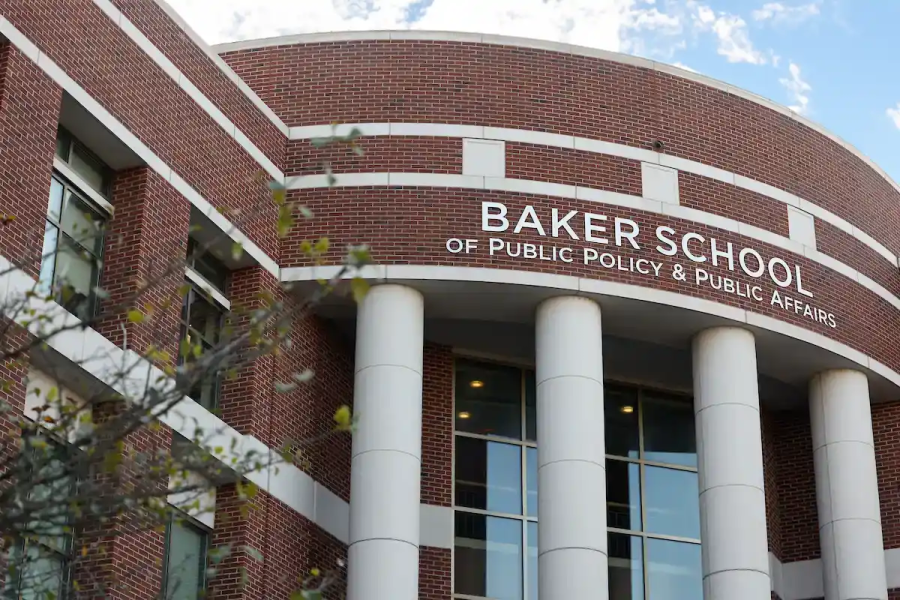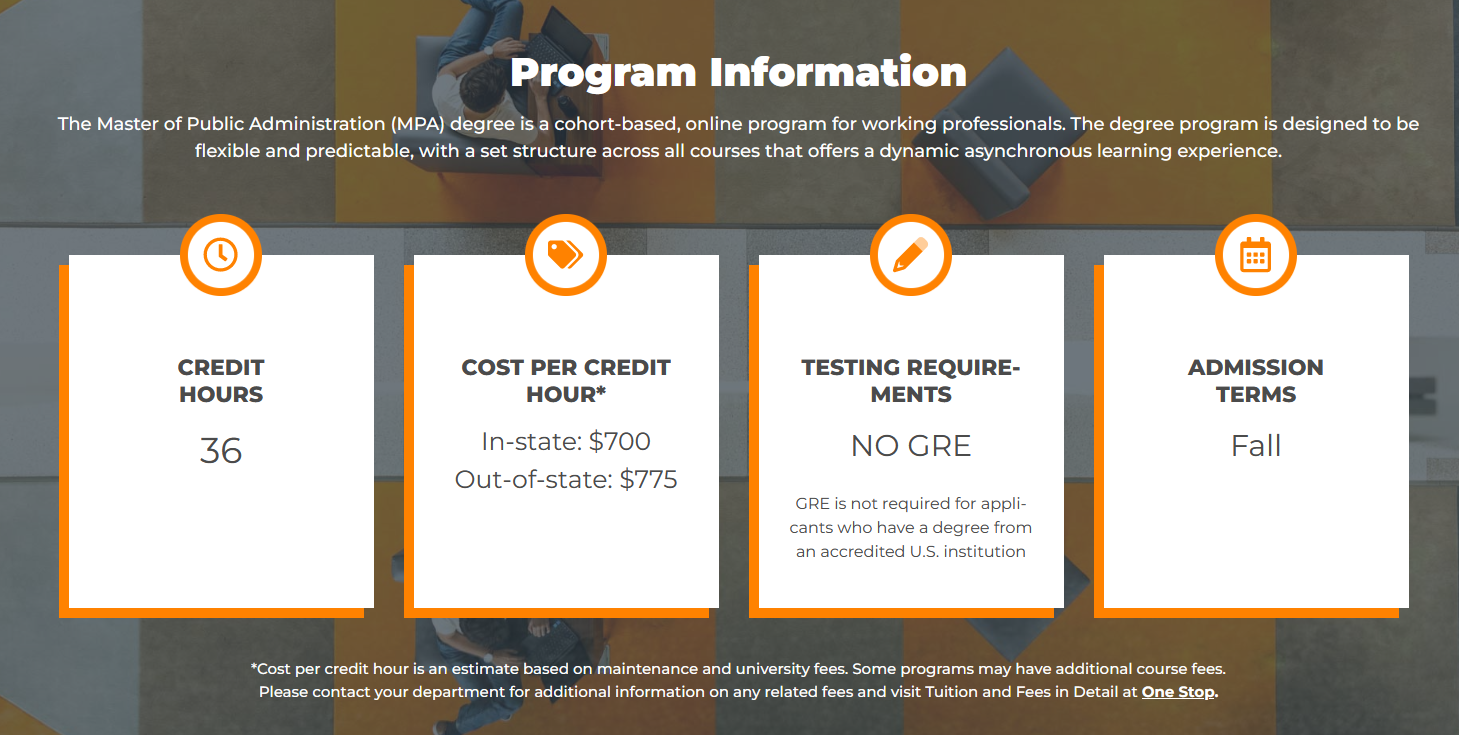UT Baker School to launch completely online master's of public administration degree

By KATE COIL
TT&C Assistant Editor
The Howard H. Baker Jr. School of Public Policy and Public Affairs is launching a new, completely online Master of Public Administration (MPA) degree aimed at working professionals seeking to both develop their own skills and contribute new ideas and practices to their communities.

Launching in fall 2024, the curriculum focuses on knowledge and skill development in public sector leadership and human and financial management along with concentrations in policy analytics, economic and community development, non-profit management, and emergency management.
Katie Cahill, senior director of strategic initiatives at the Baker School, said the new online degree program builds on the more than 50 years of success the in-person degree program has built.
“We wanted to be sure that this very successful curriculum we have had at the university for more than 50 years was available to all public servants in the state of Tennessee,” Cahill said. “We recognize that there are many exceptional public servants who are working professionals who do not have the time to come to in-person classes or relocate to Knoxville. We also don’t think it would be in the best interest of the state to do so. We decided to design a program that would allow them to continue to serve in their communities while expanding their knowledge base and skillset, advance their careers, and do even more in public service.”
To participate in the program, applicants must have a minimum of two years of professional experience, professional references, and a 3.0 minimum GPA as an undergraduate.
Much of the core coursework of the online program is the same as the in-person. The main difference between the in-person and the online degree is that the online course is more self-directed and allows for more flexibility.
“All the curriculum is designed together, meaning all the classes use the same platform and same structure,” Cahill said. “That makes it really predictable for working professionals to know what to anticipate in terms of software they are going to encounter and the way the classes are structured so they can plan around that.
The course is set up asynchronously, meaning participants can watch lectures, complete work, and participate around their own schedule and as quickly as they want to. Cahill said there are only three synchronous or scheduled sessions to participate in – one as orientation, one mid-semester, and one right before finals – to check in with students on their status.
There is also an optional, in-person orientation event on-campus participants can come to at the beginning of the semester to get to meet and network with other members of their cohort, faculty, and Baker Center staff.
Instead of an internship and capstone project required for the in-person program, online learns will also have an executive practicum.”

“The in-person program does not require evidence of professional experience,” Cahill said. “In recognition of the professional experience that those participating in the online program are required to have, their requirements are different. The executive practicum is a course for three credits in the fall and three credits in the spring of their final year where they propose a program or initiative for either their current employer or an organization of their choosing to design and implement. We think that is a benefit both to the employer or organization and provides real-world application of those expanded skills and knowledge the person has acquired.”
The Baker Center is holding two upcoming meetings to provide more information to those interested in the program. The virtual session will be at 5 p.m. (EST) on May 10, 2024, while an in-person session will be held at the Cordell Hull State Office Building in Nashville on May 3, 2024, at 9 a.m. (CST). Additional information sessions may be added if interest grows. Prospective students can also get more information at any time online from the Baker Center and will be contacted by staff about the program.
The priority deadline to apply for the Fall 2024 cohort of the MPA program is July 15.
Cahill said those who do not feel the MPA program is a good fit may find more interest in a similar, completely online master’s of public policy (MPP) program that the Baker Center is also launching in Fall 2025.
"The MPA is really focused on management for the public sector, which includes things like budgeting, financial management, HR management, working with data, and those kinds of public administration principles. It also has only four concentrations,” Cahill said. “The MPP is more focused on economics, data analytics, and policy. Students will take two courses on economics, three on data analytics, and three courses on policy and ethical leadership. They will also be able to choose from a longer list of concentrations, like health policy, national security policy, and environmental policy. Someone who is interested in public policy, may want to wait for the fall of 2025 to pursue the MPP instead. In terms of structure, the MPP online program will be the same as the MPA.”
Cahill said the hope is the program will allow working professionals to bring new knowledge, skills, and support back to their communities.
“This program has benefits beyond what they may already have in their community,” she said. “It provides a network of access to others who have completed the degree, both Tennesseans and those throughout the Southeast, to gain knowledge of best practices, share in professional development and support one another as they face novel challenges. I think that is an important thing for any community, to have to be connected to communities of similar size and facing similar problems.”
